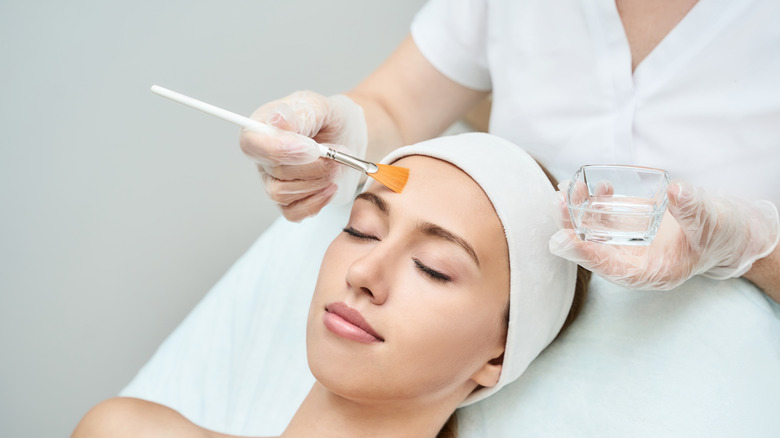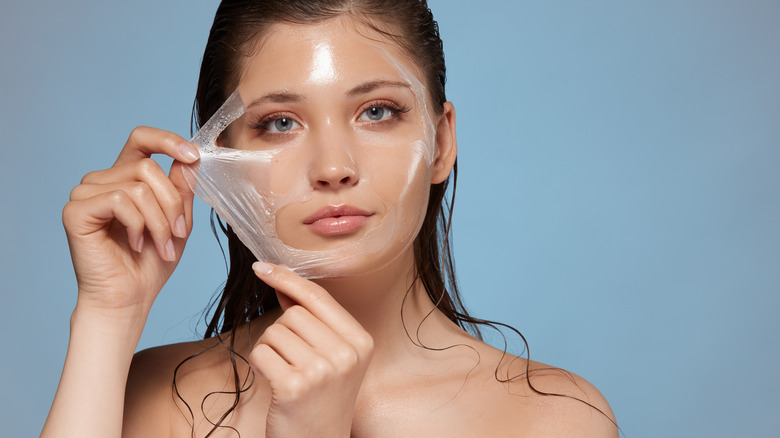Here's The Real Difference Between Chemical Peels
Achieving clear skin is pretty much everyone's goal. And if you're tired of switching up your skincare routine and spending countless dollars on products, a new solution could be a chemical peel.
According to WebMD, a chemical peel is a solution applied to the skin, which will make it blister and peel off. Essentially, you'll be purging your old skin for a clearer, less wrinkled face. This chemical solution can be applied to the face, neck, and hands, the outlet reported. Chemical peels have a multitude of benefits. Byrdie reported that a chemical peel refines lines and wrinkles, improves the efficacy of skincare products, and prevents acne.
"Chemical peels help with acne because they lower the pH of the skin, making bacteria uncomfortable and unable to survive," Anna Guanche, a dermatologist, said to the outlet. "They help remove the surface skin debris leading to a healthier complexion with less clogged pores."
Yes, if you're wondering, chemical peels are safe, according to The Peer Group, and there are limited side effects to getting a peel. The only worrying side effect is the peeling of the skin, per Byrdie. "Oftentimes, this is the desired effect in order to achieve optimal results — hence the name. However, if the wrong type of peel is used, it can damage the skin and even scar or hyperpigment the skin," Guanche said.
These are the three types of chemical peels
There are several different types of chemical peels you can try, and each comes with different pain levels (via The Peer Group). Byrdie revealed that the most common chemical peels are glycolic, salicylic, and TCA peels, all of which are formulated with acids.
A glycolic peel is the best peel to try if you're trying to brighten your skin and get rid of any age-related issues, Byrdie added. "Glycolic acid is an alpha hydroxy acid that helps to gently exfoliate the outer layer of the skin," Guanche explained. She went on to say that glycolic is one of the "mildest peels" out there and is especially beneficial for those with acne or sub damage. Salicylic peels, in comparison, are great for breakout-prone skin, the outlet revealed. This chemical peel targets oils glands and prevents whiteheads and blackheads.
Lastly, a TCA peel is a medium-deep peel that can only be done by a professional (via Byrdie). They help with scarring and pigmentation issues, the outlet added. Shani Darden, a celebrity esthetician, said that TCA peels can be great for targeting fine lines, and can reduce both acne scars and sun damage. "They can produce great results, but downtime is required as your skin will peel for at least a week," she said. However, Darden warned that those with sensitive skin shouldn't try this chemical peel as it can easily damage your skin.
Now that you know the different types of peels, head over to your favorite dermatologist or esthetician to try it! Clear skin here you come.

